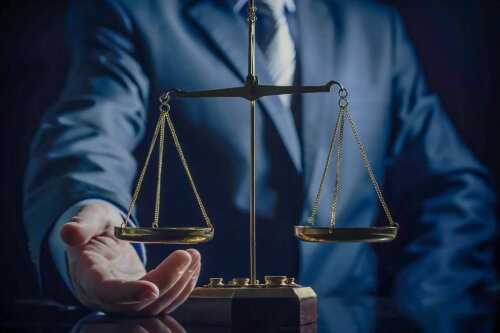Best Renewable & Alternative Energy Lawyers in White River
Share your needs with us, get contacted by law firms.
Free. Takes 2 min.
List of the best lawyers in White River, South Africa
About Renewable & Alternative Energy Law in White River, South Africa
White River, located in the Mpumalanga province, is experiencing rapid growth in the adoption of renewable and alternative energy solutions. With abundant sunlight and strategic proximity to the Kruger National Park and agricultural hubs, the area is becoming a hotspot for solar, wind, and bioenergy projects. The transition to cleaner energy sources is driven by environmental concerns, energy security, and national policies promoting sustainability. Legal frameworks at both the national and municipal levels govern the development, installation, and operation of renewable energy systems in White River, ensuring that these projects comply with safety, environmental, and land use regulations.
Why You May Need a Lawyer
Engaging with renewable and alternative energy projects often involves complex legal issues. You may require a lawyer if you are:
- Seeking to install a residential, commercial, or agricultural solar PV system
- Investing in or developing a renewable energy project, such as a solar farm or biomass facility
- Navigating regulatory approvals and permitting for new energy infrastructure
- Negotiating power purchase agreements or grid connection contracts
- Addressing property rights, land use, or servitude agreements for energy projects
- Dealing with disputes related to energy supply or contractual breaches
- Ensuring environmental compliance and impact assessments
- Securing incentives, subsidies, or funding for clean energy initiatives
A lawyer with expertise in energy law can help you avoid costly mistakes, protect your investments, and facilitate compliance with all applicable legal requirements.
Local Laws Overview
Renewable and alternative energy projects in White River are primarily regulated by national legislation, but there are also specific municipal by-laws and requirements to consider. Key aspects include:
- Electricity Regulation Act: Governs energy generation and distribution, including licensing and registration requirements for certain energy facilities.
- National Energy Regulator of South Africa (NERSA): Oversees licensing and compliance for energy projects.
- Environmental Management Acts: Require environmental impact assessments and compliance for larger projects.
- Mpumalanga Province and Mbombela Local Municipality By-Laws: Dictate building approvals, land use permissions, and installation standards for renewable energy systems.
- SABS Standards: Define technical and safety standards for energy installations, such as the SANS 10142 for the wiring of premises.
- Feed-in Tariffs and Net Metering Policies: Encourage small-scale renewable energy generation, subject to municipal or utility approval.
Each project type and scale can trigger different regulatory requirements. Legal advice is critical for understanding which rules apply to your situation and how to comply.
Frequently Asked Questions
What types of renewable energy projects are most common in White River?
The most prevalent projects are solar photovoltaic systems for homes, businesses, and farms, along with some biogas and small-scale wind initiatives.
Do I need permission to install solar panels on my property?
Yes, most installations require municipal approval, adherence to building by-laws, and compliance with national wiring standards.
Can I sell electricity generated by my solar panels back to the grid?
Selling excess power is possible under specific conditions. You must register with the local municipality or Eskom, ensure your system meets technical standards, and may need to sign a power purchase agreement.
Are there financial incentives for installing renewable energy systems?
There are incentives such as tax breaks for businesses and VAT reductions for solar panels, but these change periodically. A lawyer or consultant can help you maximize available benefits.
What environmental regulations apply to renewable energy projects?
Larger projects must undergo environmental impact assessments to ensure minimal harm to the local ecosystem. Smaller installations must still comply with waste, noise, and pollution regulations.
Is there a difference between municipal and Eskom-supplied areas?
Yes, the process and requirements for connecting to the grid or registering your system differ depending on whether your electricity is supplied by the municipality or Eskom.
How do I resolve disputes with installers or energy suppliers?
Legal steps can include mediation, arbitration, or court proceedings. An energy lawyer can help you understand your rights and the most effective resolution method.
What are the risks if I ignore legal requirements?
Non-compliance can lead to fines, orders to dismantle illegal installations, loss of insurance cover, or inability to connect to the grid.
Can I store energy using batteries, and are there rules for this?
Battery storage is allowed, but installations must conform to safety standards and sometimes require additional approval or inspections.
How can a lawyer add value to my renewable energy project?
A lawyer anticipates potential legal obstacles, drafts robust contracts, ensures regulatory compliance, and represents your interests in negotiations or disputes.
Additional Resources
If you need further information or support relating to renewable and alternative energy in White River, consider the following resources:
- Department of Mineral Resources and Energy (National level)
- National Energy Regulator of South Africa (NERSA)
- Mbombela Local Municipality: Town planning and building control departments
- South African National Energy Development Institute (SANEDI)
- South African Photovoltaic Industry Association (SAPVIA)
- Local branches of Eskom for grid connection queries
- Environmental consultants and engineering firms operating in Mpumalanga
Next Steps
If you require legal assistance in the field of renewable and alternative energy, consider taking these steps:
- Document your project scope, objectives, and any correspondence with other parties
- Gather records of all permits, approvals, and applications filed or received
- Research local lawyers or law firms with experience in energy law and environmental compliance
- Schedule a consultation to discuss your needs and potential legal risks
- Stay updated on changes to local and national energy regulations
Proactive legal planning can prevent costly mistakes and ensure your renewable energy project in White River is both successful and compliant.
Lawzana helps you find the best lawyers and law firms in White River through a curated and pre-screened list of qualified legal professionals. Our platform offers rankings and detailed profiles of attorneys and law firms, allowing you to compare based on practice areas, including Renewable & Alternative Energy, experience, and client feedback.
Each profile includes a description of the firm's areas of practice, client reviews, team members and partners, year of establishment, spoken languages, office locations, contact information, social media presence, and any published articles or resources. Most firms on our platform speak English and are experienced in both local and international legal matters.
Get a quote from top-rated law firms in White River, South Africa — quickly, securely, and without unnecessary hassle.
Disclaimer:
The information provided on this page is for general informational purposes only and does not constitute legal advice. While we strive to ensure the accuracy and relevance of the content, legal information may change over time, and interpretations of the law can vary. You should always consult with a qualified legal professional for advice specific to your situation.
We disclaim all liability for actions taken or not taken based on the content of this page. If you believe any information is incorrect or outdated, please contact us, and we will review and update it where appropriate.









